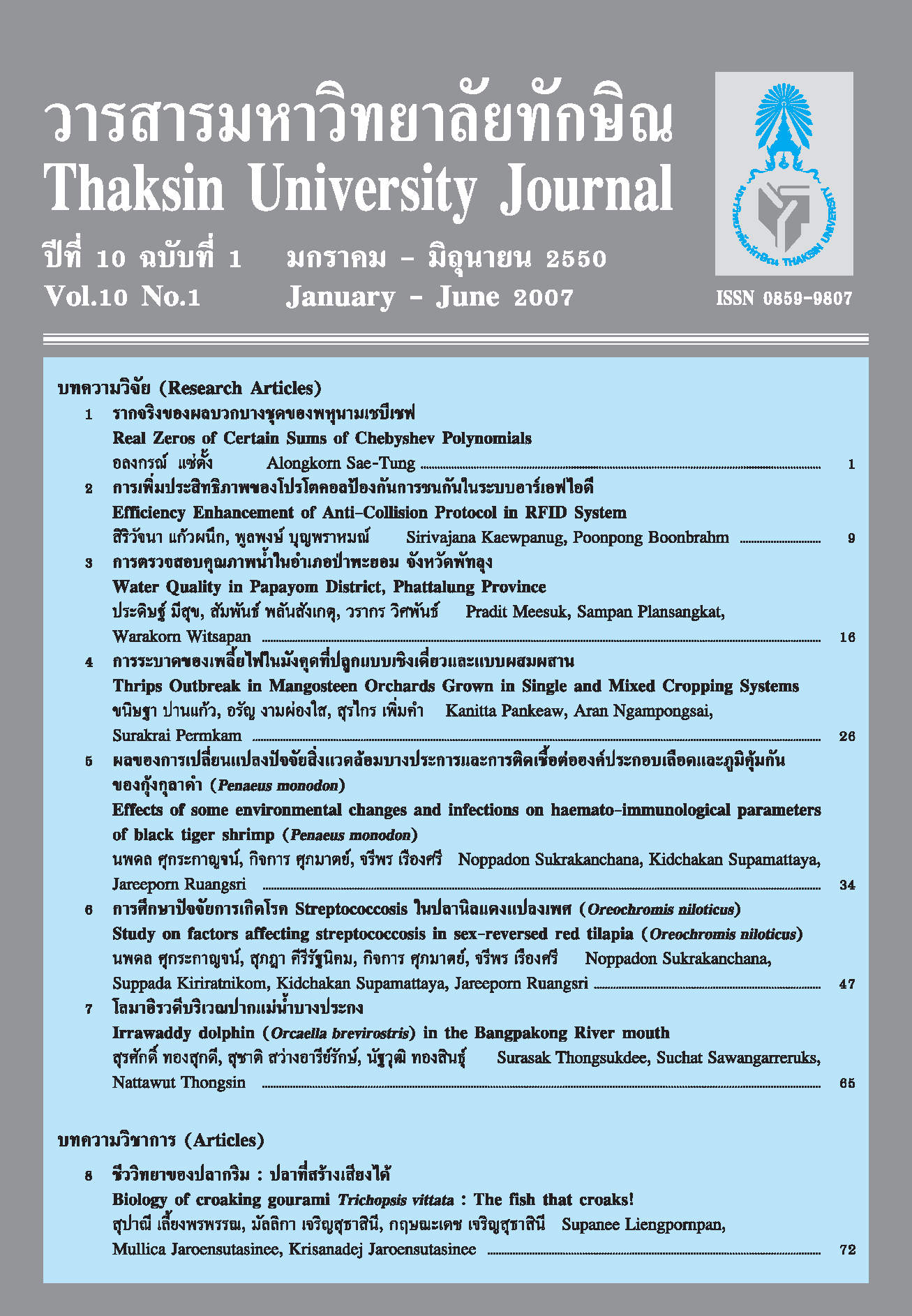ผลของการเปลี่ยนแปลงปัจจัยสิ่งแวดล้อมบางประการและการติดเชื้อต่อองค์ประกอบเลือดและภูมิคุ้มกันของกุ้งกุลาดำ (Penamus monodon)
Main Article Content
Abstract
This research aimed to study effects of some environmental factors as stressful conditions, such as temperature, salinity, pH, dissolved oxygen content, ammonia concentration and alkalinity on some haemato-immunological parameters of black tiger shrimp ( Penaeus monodon ) rearing in earthen pond and under laboratory facility. Shrimp in laboratory exposed to stress conditions according to environmental changes. Artificial infections with luminous bacteria, Vibrio harveyi , white spot syndrome virus (WSSV) and yellow head virus (YHV) of shrimp were also carried out to assess the immunological responses of the shrimp. The investigated haemato-immunological parameters were: the total haemocyte count (THC), phenoloxidase (PO) activity, serum protein concentration, blood glucose, blood pH and clotting time. The results showed that shrimp exposed to stress agents from environmental changes and bacterial- or viral-infected shrimp exhibited significant decrease of THC, PO activity, serum protein concentration and blood glucose, compared to the controls. The decrease of such haemato-immunological parameters will increase the susceptibility of the shrimp to pathogens. Thus, shrimp always maintain a low level of alertness to pathogens and/or environmental change. In conclusion, among the investigated haemato-immunological parameters, THC, PO activity, serum protein concentration and blood glucose were the most sensitive parameters to stress and infection conditions and could be virtually incorporated in shrimp cultivation programs, as well valuable references of shrimp health status.
Article Details
Section
Research Articles


